No products in the cart.
Sale
Nelipepimut-S (CAS 160212-35-1) | GMP Supplier & Peptide Vaccine Research
Original price was: $28.00.$24.00Current price is: $24.00.
Nelipepimut-S is a synthetic peptide vaccine designed to elicit immune responses against HER2-positive breast cancer cells. It demonstrates potent immunogenicity in preclinical models and is suitable for mechanistic and translational immunotherapy research. Supplied in GMP-grade form for reproducible experiments. For laboratory research use only.
Description
Product Description
Nelipepimut-S is a synthetic peptide vaccine developed to target the human epidermal growth factor receptor 2 (HER2), a well-known oncogenic driver in a subset of breast cancers. As a peptide-based immunotherapeutic, Nelipepimut-S is designed to activate cytotoxic T lymphocytes (CTLs) specifically against HER2-positive tumor cells, enabling selective antitumor immune responses. Its sequence corresponds to the immunodominant E75 epitope of HER2, which is recognized by HLA-A2 and HLA-A3 restricted CTLs, providing a robust basis for targeted immunotherapy research.
In preclinical studies, Nelipepimut-S has been shown to elicit strong peptide-specific T-cell responses, resulting in enhanced recognition and lysis of HER2-expressing cancer cells. The peptide is formulated for stability, ensuring reliable immune activation across in vitro and in vivo models. Researchers can investigate its capacity to prime the adaptive immune system, study mechanisms of tumor immunosurveillance, and evaluate combinatory effects with adjuvants or checkpoint inhibitors.
Nelipepimut-S represents a novel approach to cancer immunotherapy by exploiting the specificity of peptide antigens. Unlike traditional chemotherapeutics, which non-selectively kill proliferating cells, peptide vaccines stimulate the patient’s immune system to recognize tumor-associated antigens, offering insights into immunological memory, T-cell receptor specificity, and tumor-immune interactions. In translational research, Nelipepimut-S provides a platform for studying personalized cancer vaccines, optimizing dosing schedules, and evaluating peptide stability and bioavailability.
The GMP-grade formulation of Nelipepimut-S ensures high purity and reproducibility, essential for preclinical investigations. Its lyophilized form maintains peptide integrity under recommended storage conditions (-20°C), enabling long-term studies in cellular assays, animal models, and mechanistic immune profiling. Researchers can also utilize the peptide to study HER2-driven oncogenic signaling pathways, T-cell infiltration dynamics, and tumor microenvironment modulation.
Further applications of Nelipepimut-S include its use in combination studies with other immunotherapeutics, such as cytokine adjuvants, immune checkpoint inhibitors, or monoclonal antibodies. These studies can help identify synergistic antitumor effects, assess immune modulation, and explore strategies to overcome tumor immune evasion. Mechanistic investigations can focus on CTL activation, antigen processing and presentation, cytokine release profiles, and immunophenotyping of lymphoid subsets.
Overall, Nelipepimut-S serves as a versatile research tool for exploring peptide-based immunotherapy, tumor-specific immune activation, and HER2-targeted cancer vaccines. Its high specificity and reproducible immunogenicity make it invaluable for both mechanistic studies and translational research in oncology.
Product Specifications
| Parameter | Details |
|---|---|
| Product Name | Nelipepimut-S |
| Synonyms | E75 peptide, HER2 peptide vaccine |
| CAS Number | 160212-35-1 |
| Molecular Formula | C62H91N17O14 (exact formula may vary with modifications) |
| Molecular Weight | ~1,351 g/mol |
| Appearance | White to off-white lyophilized powder |
| Purity | ≥95% (HPLC) |
| Solubility | Soluble in DMSO, water, and aqueous buffers |
| Stability | Stable ≥24 months in lyophilized form |
| Storage Conditions | Store at -20°C, avoid repeated freeze-thaw cycles |
| GMP Compliance | Manufactured in GMP-certified facility |
| Applications | Preclinical immunotherapy research, HER2-positive cancer studies, peptide vaccine research |
| Availability | Wholesale & retail |
| Experimental Models | HER2-positive breast cancer cell lines, HLA-A2/A3 transgenic animal models, immunogenicity assays |
| Safety Considerations | Handle with standard laboratory precautions; research-use only |
The specifications of Nelipepimut-S emphasize quality and reproducibility, ensuring that researchers can reliably induce immune responses across experimental models. Its solubility profile supports in vitro T-cell activation studies and in vivo vaccination protocols. The GMP-grade peptide guarantees consistency across batches, enabling multi-phase and longitudinal immunological studies.
Mechanism of Action & Research Applications
Nelipepimut-S functions as a peptide vaccine targeting HER2, designed to activate cytotoxic T lymphocytes (CTLs) against tumor cells expressing the HER2 antigen. Upon administration in preclinical models, the peptide is processed by antigen-presenting cells (APCs) and presented on MHC class I molecules, which are recognized by CD8+ T cells. This recognition triggers CTL proliferation, cytokine release, and targeted lysis of HER2-positive tumor cells.
Mechanism Overview:
Antigen Presentation: Nelipepimut-S is internalized by dendritic cells and other APCs. Peptide fragments are loaded onto MHC class I molecules and displayed on the cell surface for CTL recognition.
CTL Activation: Specific CD8+ T cells recognize the E75 epitope and become activated, releasing perforin and granzymes to induce apoptosis in target cells.
Immune Memory Formation: Repeated exposure to the peptide enhances long-term immune memory, facilitating durable antitumor immunity.
Cytokine Release: Activated CTLs secrete IFN-γ, TNF-α, and other cytokines, enhancing antitumor responses and modulating the tumor microenvironment.
Research Applications:
HER2-positive Breast Cancer Studies: Evaluate peptide immunogenicity, T-cell cytotoxicity, and tumor regression in vitro and in vivo.
Immunotherapy Mechanism Research: Study antigen processing, T-cell priming, cytokine profiles, and checkpoint regulation.
Combination Therapy Research: Investigate synergistic effects with adjuvants, immune checkpoint inhibitors, monoclonal antibodies, or chemotherapeutics.
Translational Research: Optimize dosing schedules, peptide delivery systems, and stability for potential clinical translation.
Immunogenicity Assays: Utilize HLA-A2/A3 transgenic models to study T-cell activation, proliferation, and memory formation.
Nelipepimut-S allows mechanistic dissection of peptide-specific immune responses, tumor-specific cytotoxicity, and strategies to enhance immunotherapy efficacy. Its reproducible immunogenicity and selective targeting of HER2 make it a highly valuable tool in preclinical oncology research.
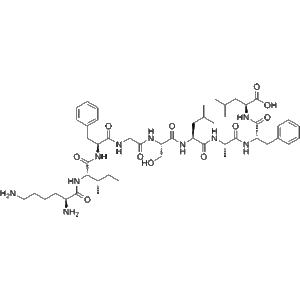
Side Effects (For Reference in Research Models)
In preclinical models, administration of Nelipepimut-S can lead to immune-related effects consistent with peptide vaccines:
Local Injection Site Reactions: Redness, swelling, or mild irritation may occur at the site of administration.
Immune Activation Effects: Elevated cytokine levels and transient fever-like responses have been observed in animal models.
Autoimmune Potential: Excessive immune stimulation may theoretically induce off-target responses, though preclinical studies show minimal systemic autoimmunity.
Cytotoxicity Monitoring: Activated CTLs may cause localized tissue damage in models with high HER2 expression; careful dosing is required.
Experimental Variability: Responses may vary by species, HLA type, and administration route.
Experimental Considerations:
Dose optimization is critical to maximize immune activation while minimizing systemic stress.
Combination with adjuvants may increase immunogenicity but also requires careful monitoring of immune responses.
Longitudinal monitoring of immune cell populations, cytokines, and tissue histology is recommended.
Standard laboratory precautions should be followed to avoid unintended exposure.
Nelipepimut-S serves as a robust tool to explore peptide-based vaccine strategies, T-cell mediated tumor immunity, and HER2-targeted immunotherapy, while requiring standard laboratory safety practices due to its potent immunogenic effects.
Disclaimer
For laboratory research use only. Not for human or veterinary use.
Keywords
Nelipepimut-S, CAS 160212-35-1, HER2 peptide vaccine, immunotherapy peptide, breast cancer research, peptide vaccine research, GMP-grade immunotherapy, T-cell activation peptide, preclinical oncology peptide
Additional information
| Weight | 0.8 kg |
|---|---|
| Dimensions | 56 × 52 × 56 cm |
What is Nelipepimut-S?
A synthetic peptide vaccine targeting HER2 for laboratory immunotherapy research.
What is the CAS number of Nelipepimut-S?
CAS No. 160212-35-1.
How does Nelipepimut-S work?
It activates cytotoxic T cells against HER2-positive tumor cells via antigen presentation on MHC class I molecules.
What research applications is it used for?
HER2-positive breast cancer research, immunotherapy mechanism studies, peptide vaccine development.
Is Nelipepimut-S GMP-grade?
Yes, it is manufactured in GMP-certified facilities for reproducible research use.
How should Nelipepimut-S be stored?
Store lyophilized at -20°C, protected from light and moisture.
Can it be used in combination studies?
Yes, compatible with adjuvants, checkpoint inhibitors, and other immunotherapeutics.
What experimental models are suitable?
HER2-positive cell lines, HLA-A2/A3 transgenic animals, and in vitro immunogenicity assays.
What is the molecular formula?
C62H91N17O14 (exact formula may vary with peptide modifications).
What safety precautions are necessary?
Handle under standard laboratory protocols; avoid human or veterinary exposure.

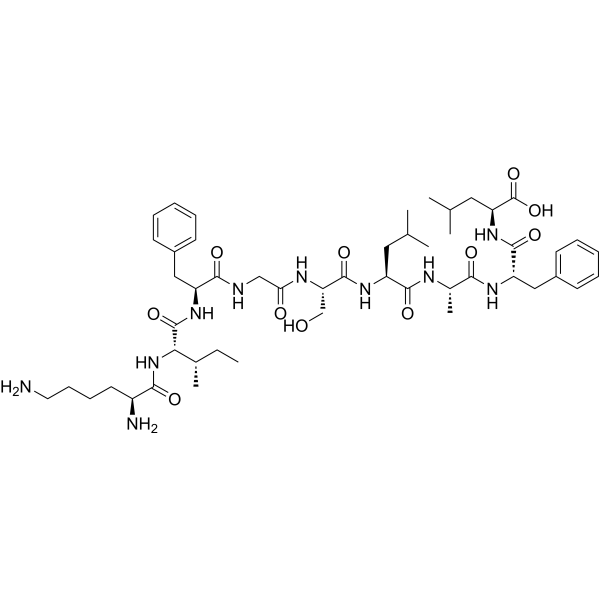
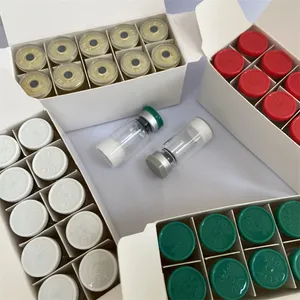
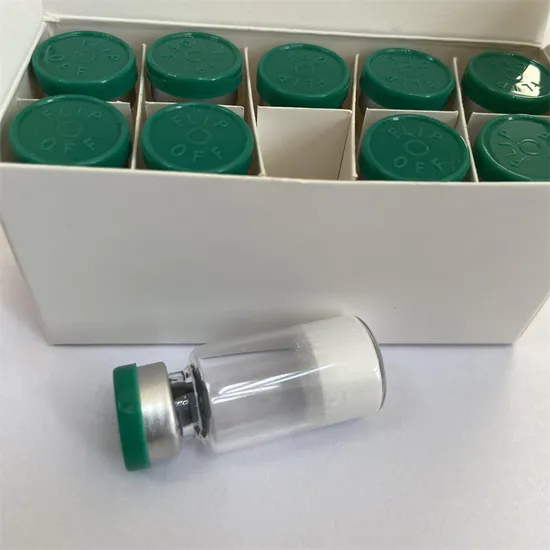

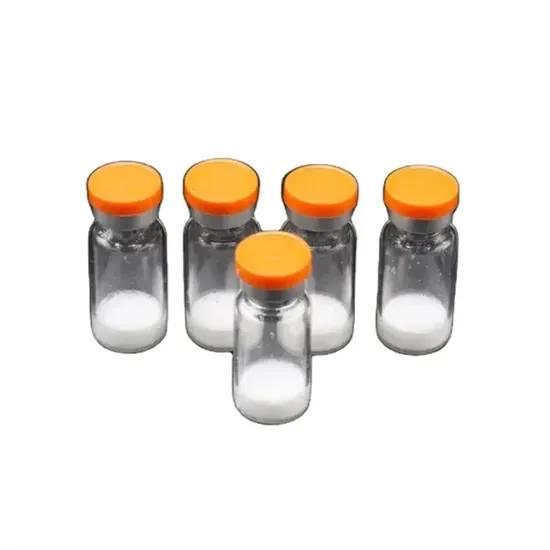
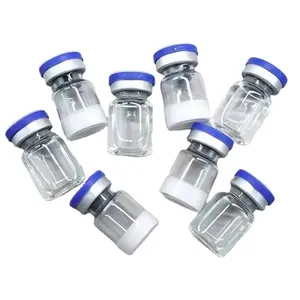
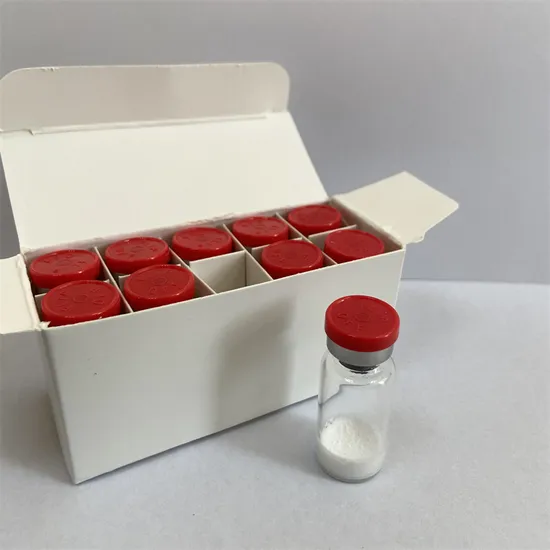
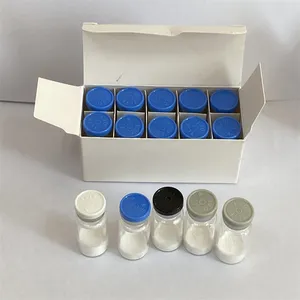

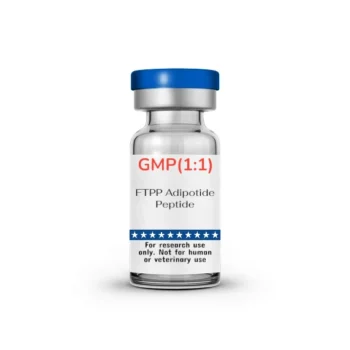
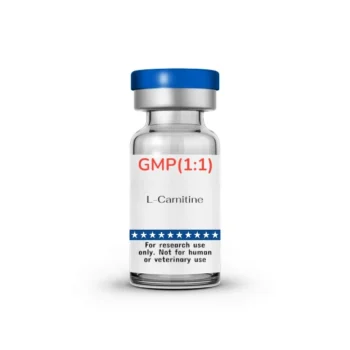
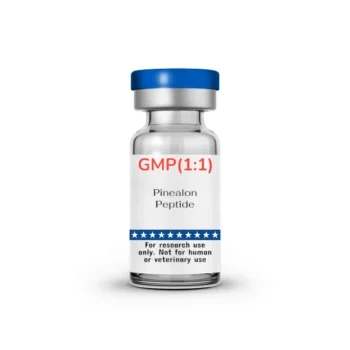
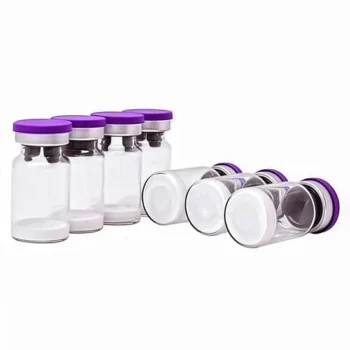

Reviews
There are no reviews yet.